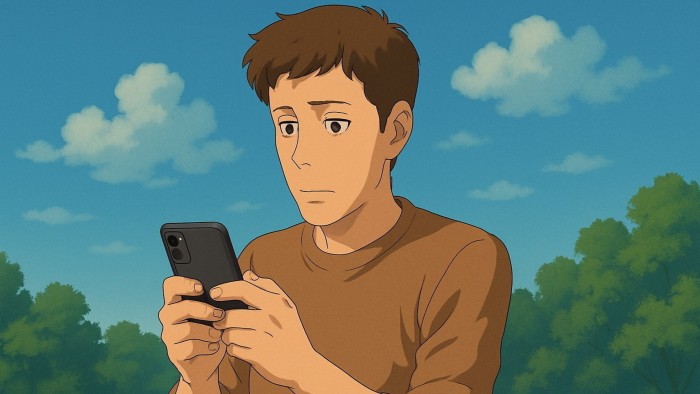Unlock the Editor’s Digest for free
Roula Khalaf, Editor of the FT, selects her favourite stories in this weekly newsletter.
Whatever the ultimate impact on our world of OpenAI and the human-level artificial intelligence it aspires to build, it can already claim one entry in the history books. No other company has ever built a consumer internet empire so fast.
It took Google 13 years to reach 1bn users, while Facebook reached the same milestone in eight. Thanks to the viral success of ChatGPT, OpenAI looks on track to get there in three.
The speed has taken even its leaders by surprise. Until recently, they insisted that their main goal was to turn the company into an AI platform for other businesses to plug into, not a consumer company in its own right. But chief executive Sam Altman said last week that its audience had doubled in a matter of weeks and now comprises a tenth of the world’s population.
This is mind-boggling — ChatGPT only passed 200mn weekly visitors last August. Rapid growth has left the company little time to address some of the most fundamental questions for any consumer internet company.
One of those questions: how can OpenAI keep users’ attention when its giant rivals control the main channels of digital distribution? Meta has a vast captive audience on networks including WhatsApp and Instagram. Apple has the iPhone. As these companies promote their own all-purpose consumer AIs, OpenAI faces the same challenge that confronted Google in its early days, of keeping a direct connection to its users (in Google’s case, the threat came from Microsoft Windows, which dominated the computing world at the time).
OpenAI can at least point to the eye-catching distribution agreement it reached with Apple last year. Under this, Apple’s Siri offers to hand off some user queries to ChatGPT if it can’t answer them itself. However, provided Apple can overcome the recent setback that has delayed the full launch of its own AI services, this seems designed to be only a temporary arrangement.
OpenAI will need to come up with its own devices and software to get around these obstacles. Google, facing the same problem in its early years, created the Chrome browser as an alternative to Microsoft and used Android to rival the iPhone. The success of this defensive strategy has come back to haunt it: the judge overseeing the US antitrust case against the search company will decide in the next few months whether to force Google to spin off Chrome. If he does, he might present OpenAI with a rare opportunity to buy a ready-made platform used by more than half the world’s internet users.
A second fundamental question that OpenAI has barely begun to address is how to make money from this new consumer audience. Advertising has been the preferred route of mass-market internet companies until now. So far Altman has turned his nose up at the idea, preferring to rely on subscriptions.
This has brought impressive results. The company’s revenue jumped to around $4bn last year, and investors recently accorded it a $300bn valuation. But Google didn’t reach that valuation until its annual revenue reached $60bn — a mark of just how much OpenAI still has to prove.
Talking recently to Ben Thompson of the Stratechery newsletter, Altman said he would prefer to make money by referring users directly to ecommerce sites rather than through ads. If ChatGPT were to evolve into an all-purpose assistant and agent that internet users trusted to guide them around the digital world, it could be in a powerful position to profit. But building an entirely new ecommerce economy around the service has not even begun yet.
The third big question before OpenAI: what, exactly, is ChatGPT for? Its latest surge in user numbers followed the launch of image generation in its GPT-4o model, sparking a viral online craze for creating images that appear to be in the style of Studio Ghibli, a renowned Japanese animation house.
Such faddish features can drive peaks of usage, but they are hardly a durable foundation for future growth. Contrast this dilemma with Google, whose users knew from their first visit what the service was for: better web search.
Large numbers of people have found great value in ChatGPT, from getting help with homework to conducting in-depth research. But it is evolving fast. Web search was added only last October, opening up competition with Google. This month, its memory was expanded so that it could draw on all of its previous interactions with a user when responding to a prompt — a big step towards turning it into the sort of personalised online agent Altman dreams of.
This inchoate product strategy makes sense in a world where AI is evolving fast, and where the ultimate prize is still unclear. But as it races towards the 1bn user milestone, OpenAI still has a long way to go to prove it can become the next consumer internet giant.
richard.waters@ft.com




